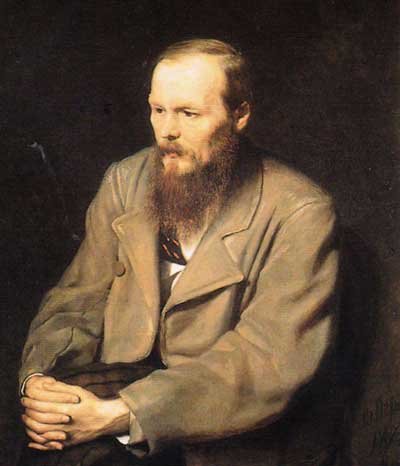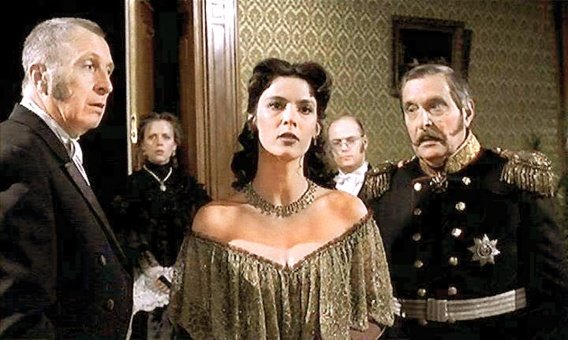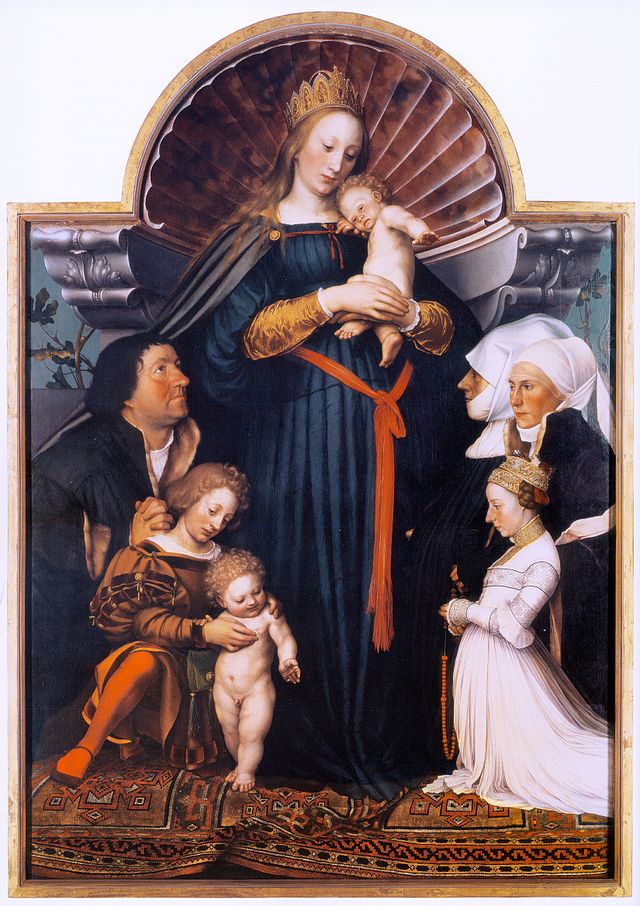
Introduction
Hi, friends and the "father" of this great idea to pay attention to the immortal book of the Russian genius - @herverisson
I will continue the idea, and will take the next 2 chapters, the beginning you can find here
and here
https://steemit.com/bookclub/@herverisson/dostoyevsky-s-the-idiot-bookclub-book-i-chapter-3-4-5
Cast of Characters
- Prince Myshkin - the main person
- General Epanchin
- Gabriel Ardalionovitch
- Elizabetha Prokofievna Epanchin
- Alexandra, Adelaida, and Aglaya Epantchine
What is happening?
The prince tells a very touching story about the poor and sick Swiss girl Marie. She was modest and very lonely, she lived with her old mother, she was kind and pure but her life was ruined by one man... She was seduced by a traveling salesman, she was rejected by all peole in her village because of this sin.
She became a real outcast, ignored, ridiculed, she was even thrown by stones in the street by kids. Nobody communicated with her, she couldn't receive any job to earn for her life. She became like a damned one and could no longer dream about a normal life.
She didn't find support even at home - her old mother rejected her and stopped taking her as her own daughter. Sexual intercourse before marriage was a huge disgrace, and became a stigma for the rest of the life.
The prince tells this story so touchingly that nobody can take an eye of him. The way what he tells and how shows how much sensitive he was inside, and how much care and kindness he has in his soul. He tells very wise thngs but in his very unique manner that nobody can understand how much deep they really are... This very story opens the Prince as a unique and a very deep person whom we can hardly call "Idiot"...
So what was with that poor girl? She was very sick but nobody knew she would die so soon. The Prince felt much care and pity to her destiny, and he was the only one to ptotect her from all the rest! He explained all kids in the village about her life and that experinece with a man and they understood him and the fact she wasn't guilty at all. Under the influence of the Prince the village children began to take care for Mary, and she died surrounded by kindness and cares.
Our deeds say much more than our words, don't they?
The prince makes a strong impression on all characters.
My favourite moment/scene is just this very story about a poor girl and the way how the Prince was telling it. It's a long-long monolog (and in the movie it's a long scene but I really couldn't breath while watching it - the actor is just brilliant as the main character himself!)

Evgeniy Mironov - a Russian actor, has a role of Mishkin in the brilliant Russian movie "Idiot"
Seeing that the prince was liked by the ladies-Epanchins, Gania Ivolgin sneakly passes through him a note to the youngest of the three sisters, Aglaya. The disgrace of marriage with the dishonored Nastasya Filippovna still torment Ganya, and he tries to find another rich bride.
Somehow Aglaya showed compassionate sympathy to him, and Ganya writes if she can give him a hope of mutual love, and if yes - he will break relationships with Nastasya Filippovna. Aglaya shows the note to Myshkin and understands that Ganya just needs a guarantee more than her reply.

the actress starring as Aglaya in that very movie

the role of Nastasya Filippovna
Ganya is shocked the prince knows so much about him and his plans then. Meanwhile, the prince, on the recommendation of the general, is going to have a room that Ganya is renting in his apartment.
Memorable quotes from these chapters:
“Well, then—they were all children there, and I was always among children and only with children. They were the children of the village in which I lived, and they went to the school there—all of them. I did not teach them, oh no; there was a master for that, one Jules Thibaut. I may have taught them some things, but I was among them just as an outsider, and I passed all four years of my life there among them. I wished for nothing better; I used to tell them everything and hid nothing from them. Their fathers and relations were very angry with me, because the children could do nothing without me at last, and used to throng after me at all times. The schoolmaster was my greatest enemy in the end! I had many enemies, and all because of the children. Even Schneider reproached me. What were they afraid of? One can tell a child everything, anything. I have often been struck by the fact that parents know their children so little. They should not conceal so much from them. How well even little children understand that their parents conceal things from them, because they consider them too young to understand! Children are capable of giving advice in the most important matters. How can one deceive these dear little birds, when they look at one so sweetly and confidingly? I call them birds because there is nothing in the world better than birds! “I told them how unhappy Marie was, and after a while they stopped their abuse of her, and let her go by silently. Little by little we got into the way of conversing together, the children and I. I concealed nothing from them, I told them all. They listened very attentively and soon began to be sorry for Marie. At last some of them took to saying ‘Good-morning’ to her, kindly, when they met her. It is the custom there to salute anyone you meet with ‘Good-morning’ whether acquainted or not. I can imagine how astonished Marie was at these first greetings from the children. The principal thing is the entire change that has already come over me. I left many things behind me—too many. They have gone. On the journey I said to myself, ‘I am going into the world of men. I don’t know much, perhaps, but a new life has begun for me.’ I made up my mind to be honest, and steadfast in accomplishing my task. Perhaps I shall meet with troubles and many disappointments, but I have made up my mind to be polite and sincere to everyone; more cannot be asked of me. People may consider me a child if they like. I am often called an idiot, and at one time I certainly was so ill that I was nearly as bad as an idiot; but I am not an idiot now. How can I possibly be so when I know myself that I am considered one? The letter had evidently been written in a hurry:“My fate is to be decided today” (it ran), “you know how. This day I must give my word irrevocably. I have no right to ask your help, and I dare not allow myself to indulge in any hopes; but once you said just one word, and that word lighted up the night of my life, and became the beacon of my days. Say one more such word, and save me from utter ruin. Only tell me, ‘break off the whole thing!’ and I will do so this very day. Oh! what can it cost you to say just this one word? In doing so you will but be giving me a sign of your sympathy for me, and of your pity; only this, only this; nothing more,nothing. I dare not indulge in any hope, because I am unworthy of it. But if you say but this word, I will take up my cross again with joy, and return once more to my battle with poverty. I shall meet the storm and be glad of it; I shall rise up with renewed strength.“Send me back then this one word of sympathy, only sympathy, I swear to you; and oh! do not be angry with the audacity of despair, with the drowning man who has dared to make this last effort to save himself from perishing beneath the waters.“G.L.”
“This man assures me,” said Aglaya, scornfully, when the prince had finished reading the letter, “that the words ‘break off everything’ do not commit me to anything whatever; and himself gives me a written guarantee to that effect, in this letter. Observe how ingenuously he underlines certain words, and how crudely he glosses over his hidden thoughts. He must know that if he ‘broke off everything,’first, by himself, and without telling me a word about it or having the slightest hope on my account, that in that case I should perhaps be able to change my opinion of him, and even accept his—friendship. He must know that, but his soul is such a wretched thing. He knows it and cannot make up his mind; he knows it and yet asks for guarantees. He cannot bring himself totrust, he wants me to give him hopes of myself before he lets go of his hundred thousand roubles. As to the ‘former word’ which he declares ‘lighted up the night of his life,’ he is simply an impudent liar; I merely pitied him once. But he is audacious and shameless. He immediately began to hope, at that very moment. I saw it. He has tried to catch me ever since; he is still fishing for me. Well, enough of this.
Conclusion
These chapters open characters from new sides, give readers an opportunity to make new conclusions about them, and especially about the Prince Myshking who develops more and more with every new chapter...
Is he an Idiot? Is he saint? Is he a genuis? Is he... ?
Who is he? Read and discover!
It has been a long time since I read this book, thanks for sharing and reminding me about it. It also makes me think of another great book "The Twelve Chairs" even though they are so different one makes me think of the other for some reason.
Downvoting a post can decrease pending rewards and make it less visible. Common reasons:
Submit
it's one more masterpiece-)
Downvoting a post can decrease pending rewards and make it less visible. Common reasons:
Submit
I remember reading his books as a teenager. He is more of a psychologist than a novelist!
Downvoting a post can decrease pending rewards and make it less visible. Common reasons:
Submit
right you are, my dear, he sees the depth of people
Downvoting a post can decrease pending rewards and make it less visible. Common reasons:
Submit
You are right @taliakerch, the story of Marie and the children is crual and touching story: I like the fact that Myshking shows them that its wrong to attack her. And in the end, they do even more than what he told them, they become the only real friend of Marie in the village... I didn't see the movie but I bet that the burial scene must be very touching.
Downvoting a post can decrease pending rewards and make it less visible. Common reasons:
Submit
you know, as far as I remember, there is no such a scene at all, it was just his speech about her but I do remember I was listening and catching every word! Don't know it's magic of the author or of the actor or both of them-)
Downvoting a post can decrease pending rewards and make it less visible. Common reasons:
Submit
The story is nice and impressive I love to read it
Downvoting a post can decrease pending rewards and make it less visible. Common reasons:
Submit
thank you!!
Downvoting a post can decrease pending rewards and make it less visible. Common reasons:
Submit
I like the Prince Myshkin's quote when he says that he is afraid to look at Aglaya because she is too beautiful and that "beauty is a riddle." I remember reading a lot of time the quote "Beauty will save the world", attributed to Dostoyevsky, but "Beauty is a riddle" is even better...
Downvoting a post can decrease pending rewards and make it less visible. Common reasons:
Submit
yes! and actually almost every phrase of Myshkin is golden and it can be a perfect quote, his thoughts are so simple but so deep..
Downvoting a post can decrease pending rewards and make it less visible. Common reasons:
Submit
Beautiful article! In my eyes there are some similarities between Marie and Nastasya, if you compare the two of them, their stories, one can see that they both had a difficult life, they both were seduced by someone, people believe they are dishonored and they have suffered a lot. Myshkin's reaction towards Marie is forgiveness and kindness, maybe he will face with the same feelings and Nastasya.
Downvoting a post can decrease pending rewards and make it less visible. Common reasons:
Submit
Amazing story!
Downvoting a post can decrease pending rewards and make it less visible. Common reasons:
Submit
By the way, I remember that at the end of the chapter 6, Dostoyevsky describes Elizabetha Prokofievna Epanchin as looking very similar to Holbein's Virgin painting which is in Dresden. According Google, this must be this painting: )
)
![640px-Darmstadtmadonna.jpg(
So this is what the Mother Epanchin looks like in Dostoyevsky imagination :)
Downvoting a post can decrease pending rewards and make it less visible. Common reasons:
Submit
yes, a very unusual comparison to this very character-) but the way of thinking of a genius is unpredictable, but I imagined her quite different-)
Downvoting a post can decrease pending rewards and make it less visible. Common reasons:
Submit
haha and now you will be unable to see her differently than that XD By the way, i have created a Discord group for the book club, maybe it will be easier to communicate. If you want to join, here it is: https://discord.gg/fPkB7G6
Downvoting a post can decrease pending rewards and make it less visible. Common reasons:
Submit